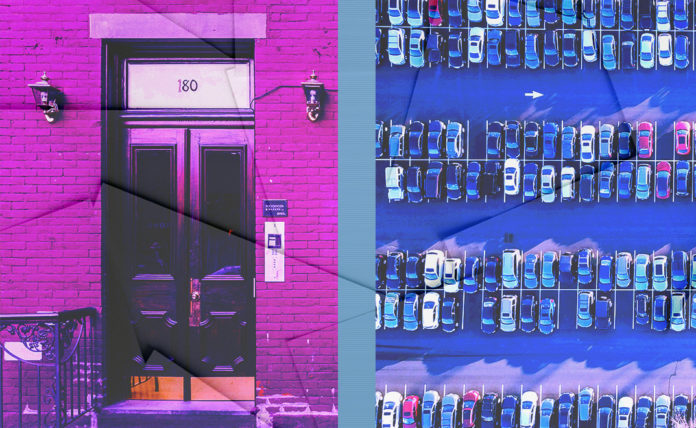

Can smart parking save brick-and-mortar stores?
Smart parking could be the key to bringing customers back to brick-and-mortar stores, improving business KPIs and customer experience, and reducing carbon emissions by providing seamless parking and data collection services.

The rise of connected devices has changed the direction of many industries, and retailers are feeling the crisis. With the widespread adoption of the Internet of Things (IoT) — 25 billion devices are expected to be connected to the Internet by 2021, according to a 2018 Gartner forecast — IoT is improving efficiency across a wide range of industries, with retail being the most likely to benefit industry.
While online retailers have previously been leaders in the adoption of new technologies, the Internet of Things presents huge opportunities for traditional brick-and-mortar retailers, one of which is reinventing parking search.
Shopping in a brick-and-mortar store begins with finding a parking space, and it takes drivers an average of 12 minutes to find a parking space at a mall. With artificial intelligence (AI)-powered IoT devices, parking search times can be drastically reduced, which will help reinvigorate brick-and-mortar retailers.
Smart Retail - Customer Satisfaction
The first and last impression a retailer makes on a customer is the parking situation. A negative experience finding a space can set a negative tone for the entire trip, reduce shopping time, and negatively impact the brand experience. The same applies when customers leave a brick-and-mortar store: An efficient and enjoyable shopping trip can be spoiled by forgetting where the car was parked or having to spend extra time trying to get out of the area.
Smart parking technology can guide drivers directly to an open parking space, eliminating frustration and improving customer satisfaction with the entire shopping experience. Sensors mounted on streetlight poles can collect real-time information on available and occupied space, and then transmit this data to digital signage to guide drivers to stop.
Advanced Data for Retailers
Consumers aren't the only ones benefiting from smart parking technology. Parking operators can gain increased visibility into their operations through real-time data collected on the backend of the software platform. This information can provide operators with information such as how long the car has been parked, or if there are parking violations, such as unauthorized use of loading bays or disabled parking spaces. This enables retailers to better understand their resources and make quick and educated decisions when needed.
The data also equips managers with the ability to analyze parking trends, helping them learn more about agency organization and marketing efforts. For example, the average length of time a customer spends at a retailer can indicate which marketing strategy is more effective and determine when is the best time for a promotion.
Create a beneficial experience
Many large retailers use credit cards or rewards programs to offer discounts, bonuses or gifts based on consumers' spending habits, but such activities don't have to be limited to shopping. Imagine going to the mall during the busy holiday season and parking your car ahead of time in a spot reserved just for you.
Advanced smart technology helps create temporary parking permits, simplify management and guide surface parking. With a card and a mobile app, patrons can receive a text message detailing which spaces are available when they get close enough, reserve a space before they arrive, and even pay if necessary. This seamless process will encourage drivers to choose retailers who care most about the relevant service.
reduce carbon emissions
Finding parking also creates an unbelievably large amount of pollution. For example, in a mall with 1,000 parking spaces, shoppers travel the equivalent of driving around the world 75 times a year just to find a parking space. This would also result in approximately 524 tonnes of unnecessary CO2 emissions into the environment. Smart parking uses real-time data collected by networking technology, which can reduce parking search time by at least 30%. Not only do retailers feel great, but a Nielsen report found that 66% consumers are willing to pay more for sustainable products, so there's a good chance they'll also choose a shopping center that actively reduces carbon emissions.
In this era of unprecedented challenges for brick-and-mortar retail, adopting advanced new technologies, such as smart parking, can transform the customer experience from hassle and stress to seamless and positive, all while gaining access to customer behavioral data. Smart retail solutions could be just what brick-and-mortar retailers need to turn things around.
Author: Thomas Hohenacker
This article is from a translation, if you want to reprint, please obtain authorization from this site first.
